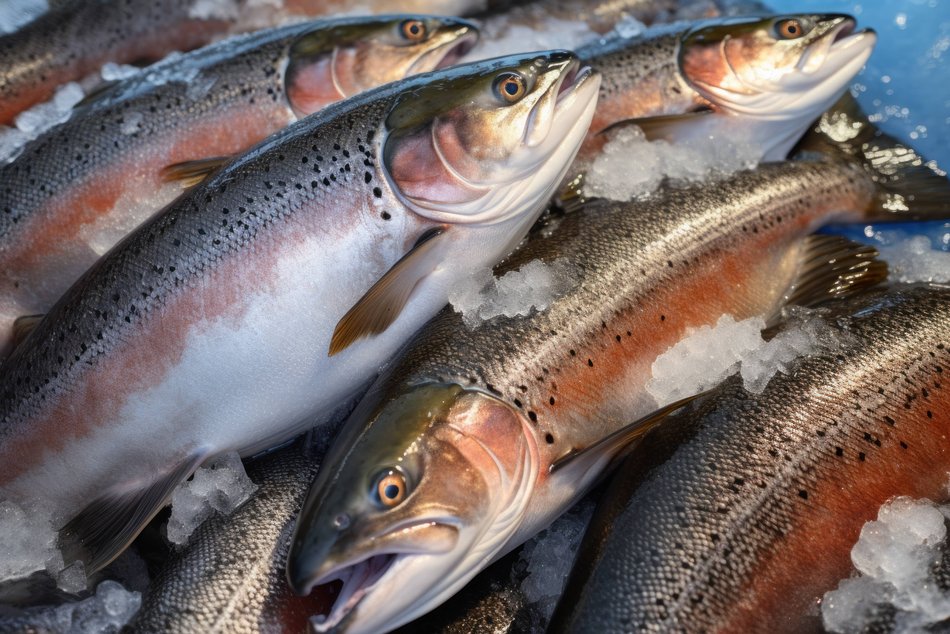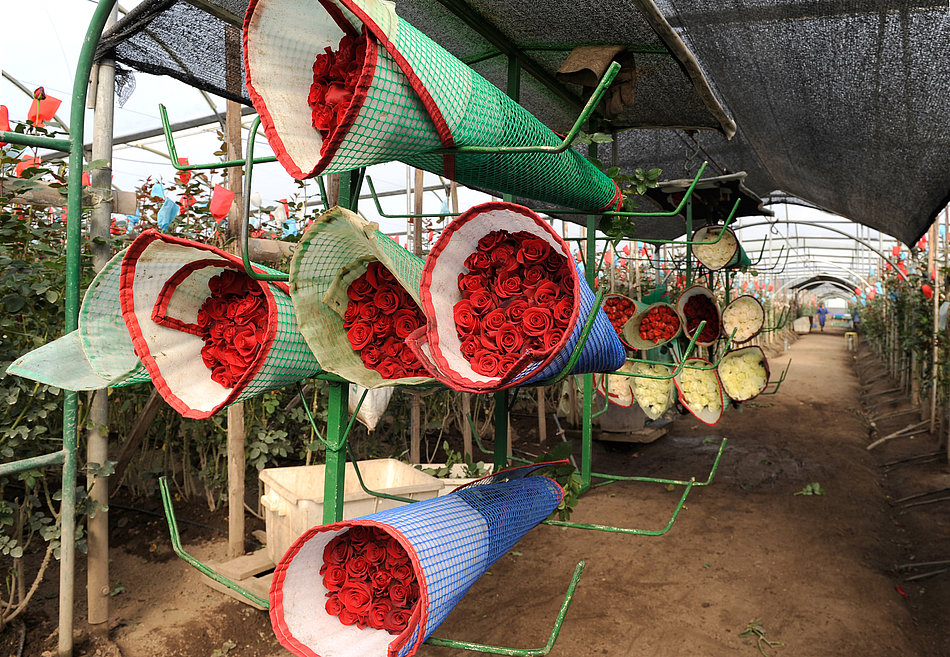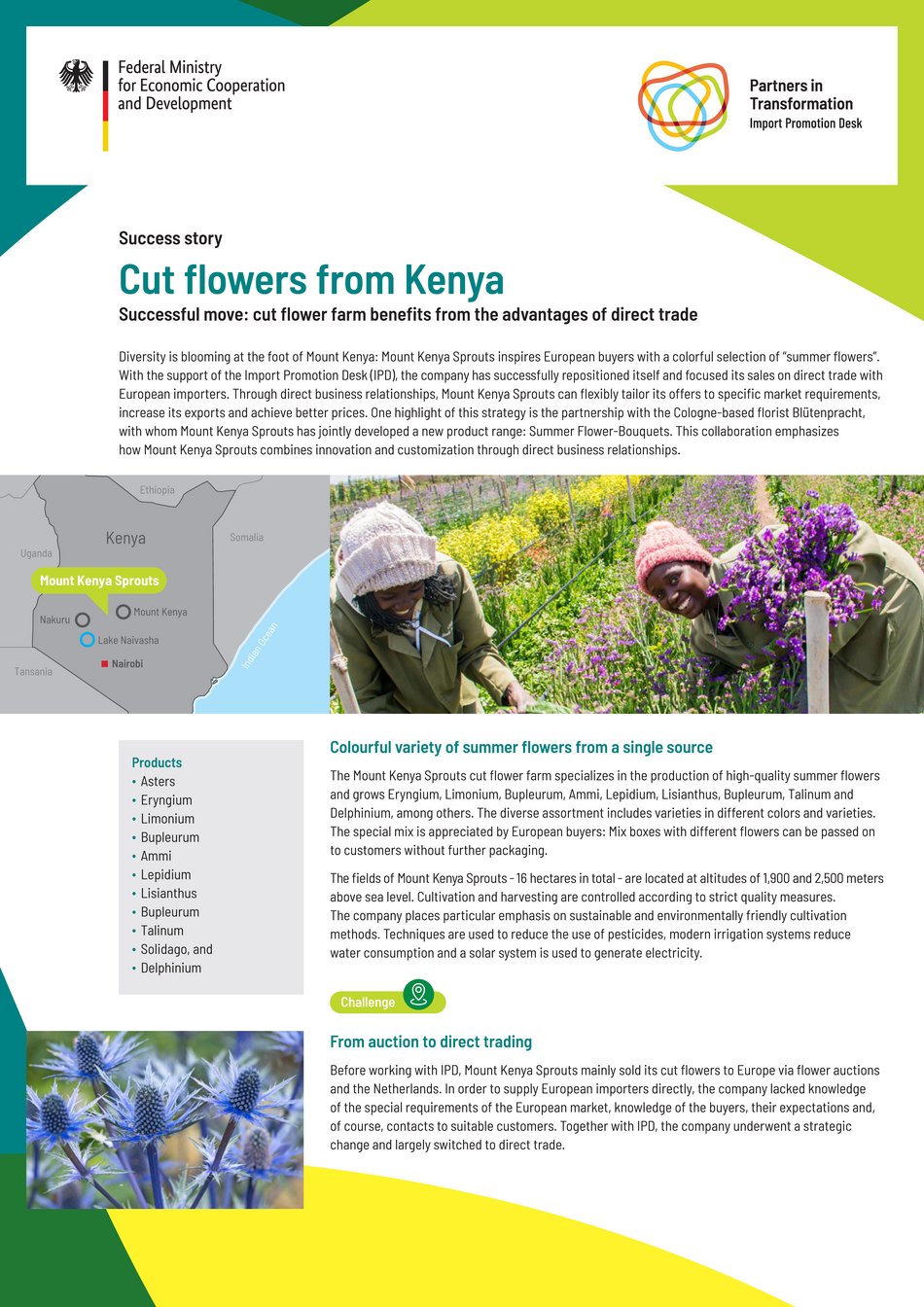Win-Win: All business partners benefit
The Import Promotion Desk (IPD) opens up access to the EU market for small and medium-sized enterprises (SMEs) in selected developing and emerging countries. It provides support to export companies on the so-called "last mile", accompanies producers and service providers on their way to the European market and arranges contacts with potential business partners.
At the same time, IPD assists German and European importers with the international sourcing of products, raw materials or services. This enables them to diversify their procurement management.
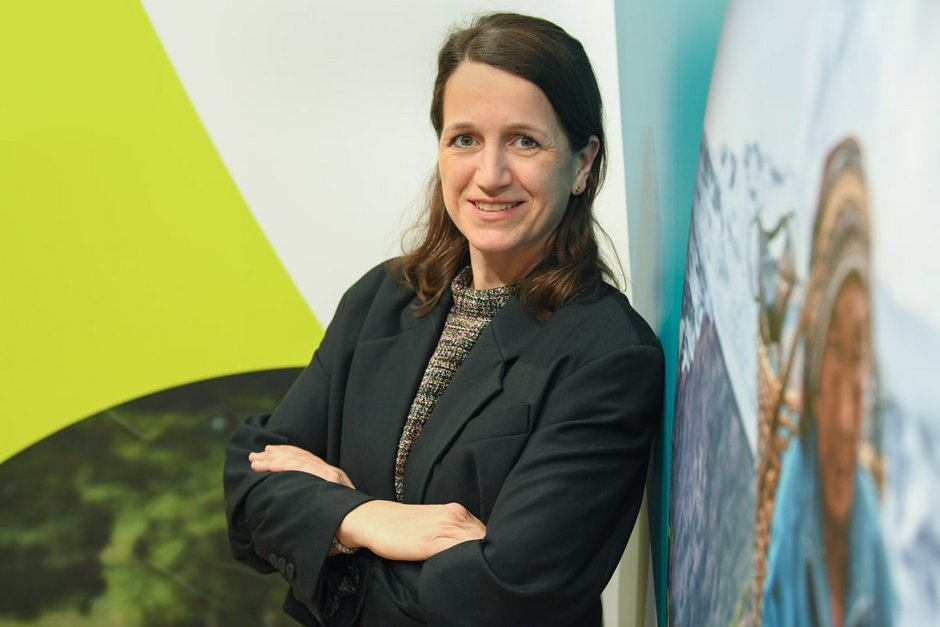
In this interview, Dr Julia Bellinghausen, Head of IPD, explains the potential of developing and emerging countries.
She talks about the importance of foreign trade in development cooperation for Germany's import economy and how IPD brings trading partners together for sustainable cooperation.
Dr Bellinghausen, what role does IPD play in economic cooperation with partners from developing and emerging countries?

IPD works at the interface between development cooperation and foreign trade. Our aim is to better integrate developing countries into global trade and thus make a substantial contribution to sustainable economic, social and ecological development in these countries. At the same time, as an import promotion initiative, we support German and European companies in finding new procurement markets in partner countries, expanding their portfolios and establishing long-term business contacts.
As part of the development policy network "Partners in Transformation - Business & Development Network", we continue to develop these two pillars – development cooperation and foreign trade. The Federal Ministry for Economic Cooperation and Development (BMZ) bundles its programmes for economic actors in this network. Together with other economic programmes, we want to promote socio-ecological and feminist economic transformation in developing and emerging countries.
Our experience in recent years shows that our approach to development-oriented import promotion is working. We have already been able to support many European companies in their procurement efforts to become sustainable. And we are giving SMEs from our partner countries long-term access to the EU market.
This is having an impact in IPD partner countries: Our commitment is fighting poverty, creating productive jobs and giving families in rural areas a future.
In addition to economic development in the partner countries, the involvement of companies in global trade also promotes social and environmental aspects. Rural structures are strengthened, women are empowered and the protection of natural resources is improved.
»The number of deals is an important indicator. Every 'match' counts. It has an impact on the company, its employees and the region.«
How can you measure the success of your work?
IPD has set up a very broad-based monitoring system focusing on economic data, such as the export turnover of IPD companies, their investments and the number of employees. The number of deals is an important indicator. Every 'match' counts. It has an impact on the company, its employees and the region.
Our monitoring shows that people in the regions are benefiting from the economic success of individual companies. Companies are expanding their farmland and production, taking on more smallholders and hiring more people.
They are also investing in quality standards and certification, such as the organic label. This goes hand in hand with the professionalisation of production, which includes smallholders. In this way, the impetus from the EU market is also reaching rural regions. On average, companies in the IPD programme have increased their export turnover to Europe by 99.7 percent and their number of employees by 52 percent.
In the future, we will also evaluate our efforts to increase the proportion of women-owned businesses in the IPD programme, and also record the number of jobs by gender.
What is IPD's recipe for success?

Our recipe for success is to focus on demand. We specifically promote products and services that are highly sought after in the German and European markets. We identify these products and services on the basis of market analyses and in cooperation with industry associations. We are in constant contact with these associations. Only if there is product interest in Europe can long-term business relationships be established.
When sourcing, we also make sure that the companies in the IPD programme meet EU standards. These may be legal standards, import regulations or certifications. We provide tailored information and training to the companies and advise them on the whole quality management process. This ensures that they are optimally prepared for the European market.
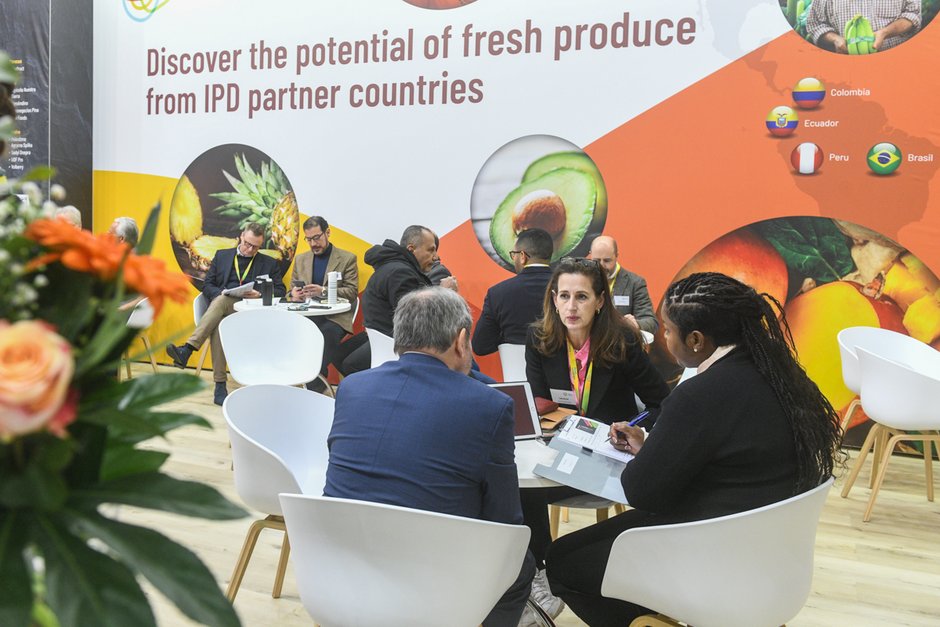
And this pre-selection and preparation of companies pays off: It enables us to provide European companies with market-relevant products and reliable companies. This 'matchmaking' takes place at trade fairs, buying missiona and B2B meetings where we present our companies.
Direct trade has many advantages for European companies. Buying directly from producers, rather than through intermediaries, means greater transparency in the supply chain, while allowing them to negotiate their needs and requirements directly with producers.
Both partners benefit equally from a deal: Our companies gain new markets in Europe and importers improve their procurement management - a win-win situation for both. And that is the basis for long-term trading relationships.
»Our recipe for success is demand orientation. We specifically promote the import of products and services for which there is a high demand in the German and European market.«
In which sectors is IPD active?
One of the IPD's main focuses is forestry and agriculture. This includes natural ingredients for food, pharmaceuticals and cosmetics, fresh produce, cut flowers and sustainable seafood.
Many developing countries have valuable raw materials. When these raw products are processed on site, whole new value chains are created. Organic certification also offers great opportunities. We therefore inform producers about the increased demand for organic products on the EU market.
IPD is also working in two service sectors: Sustainable tourism and IT outsourcing. The tourism sector is a labour-intensive industry and makes an important contribution to economic development in many countries.
The IT outsourcing sector is characterised by high demand: we have a growing need for digital applications, but there is a shortage of skilled workers in Europe. In contrast, IPD partner countries, especially in Africa, have young professionals – many of them women. This is where IPD wants to take action – in line with our concept of demand orientation.
How do you ensure that companies in the IPD programme are meeting the growing demands of environmental and social sustainability?
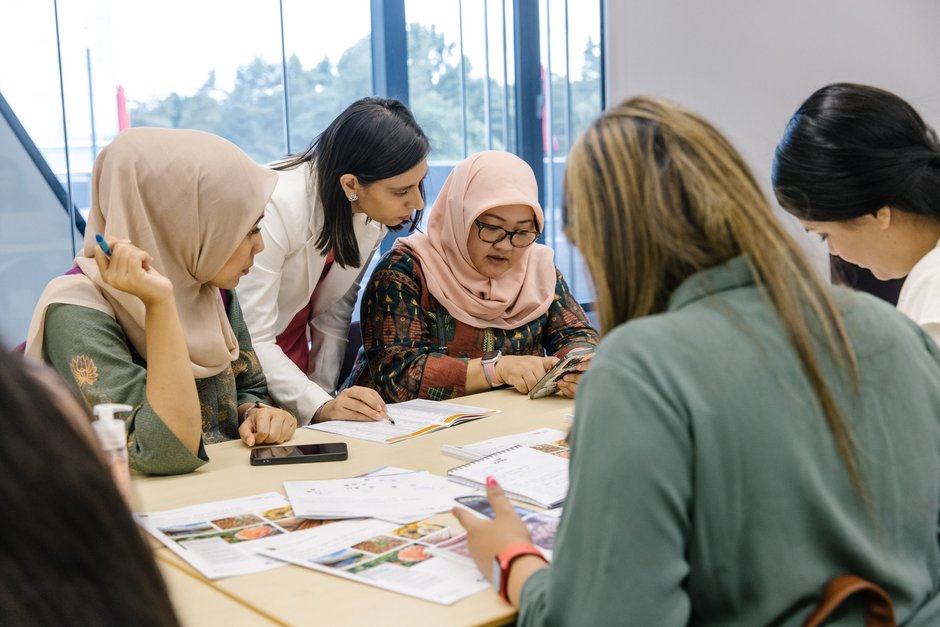
Promoting sustainable supply from developing and transition countries is a central theme of IPD. The demand orientation outlined above and the associated long-term sales opportunities for exporters on the EU market are essential prerequisites for a sustainable economic impact in our partner countries.
In addition to economic sustainability, we also take ecological and social aspects into account. When determining the sectors in which we are active and when sourcing, we take into account factors such as resource-conserving production, increasing and improving employment and promoting female employees.
In addition, we provide CSR (Corporate Social Responsibility) training to prepare companies for current market requirements in terms of environmental and social standards. In addition to the increased expectations of consumers, there are also legal requirements to be taken into account, such as the German law on corporate responsibility to prevent human rights abuses in supply chains.
In our training sessions, we inform IPD companies about current legal requirements and the fundamental importance of responsible corporate behaviour, and support them in strategically anchoring CSR in their corporate culture.
In the partner countries, the IPD team works closely with export promotion organisations. What are the key areas of cooperation?
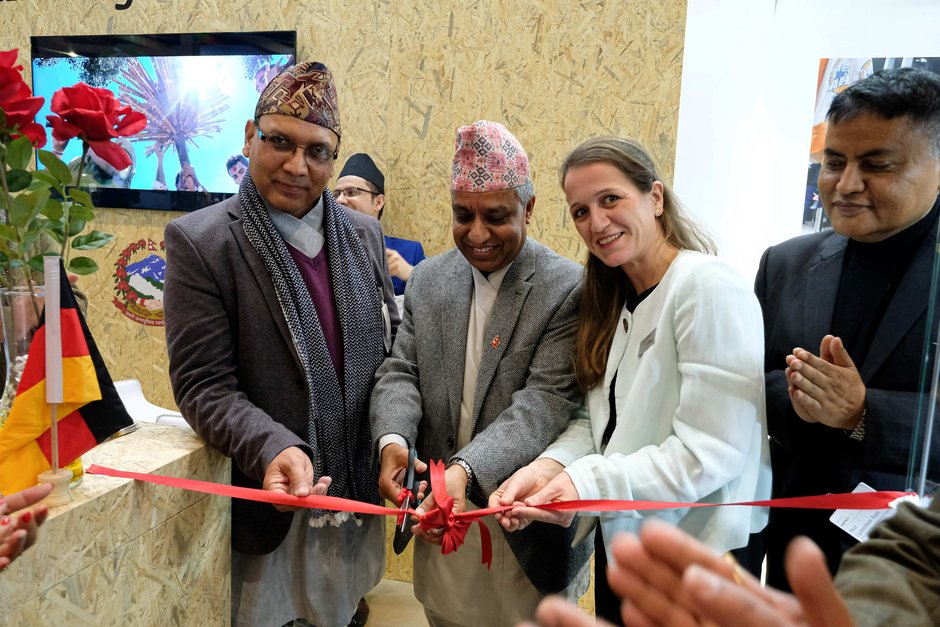
In general, we support trade associations and export promotion organisations in expanding and optimising their range of export promotion activities. For example, we can assist them in organising their own stands at international trade fairs. In our Pre Fair Workshops, we prepare exhibitors for product presentations and sales meetings in the run-up to a trade fair. Another example of best practice is a special training programme for female entrepreneurs and managers.
We have stepped up our cooperation with export promotion organisations in recent years, opening regional offices in Abidjan (Côte d'Ivoire), Quito (Ecuador), Nairobi (Kenya) and Casablanca (Morocco). By working door-to-door with our partner organisations, we can implement joint projects more quickly, tailor them more closely to local needs, and directly contribute our knowledge of the EU market and demand. The regional offices also facilitate coordination with other local players, such as the chambers of foreign trade and the German Society for International Cooperation (GIZ).
At present, we are providing very intensive support on the ground, with the aim of enabling the organisations to build up sustainable export promotion structures and, in future, to provide the best possible support for export companies wishing to engage in international trade using their own resources.
Finally, could you give us some examples of the best "matches"?
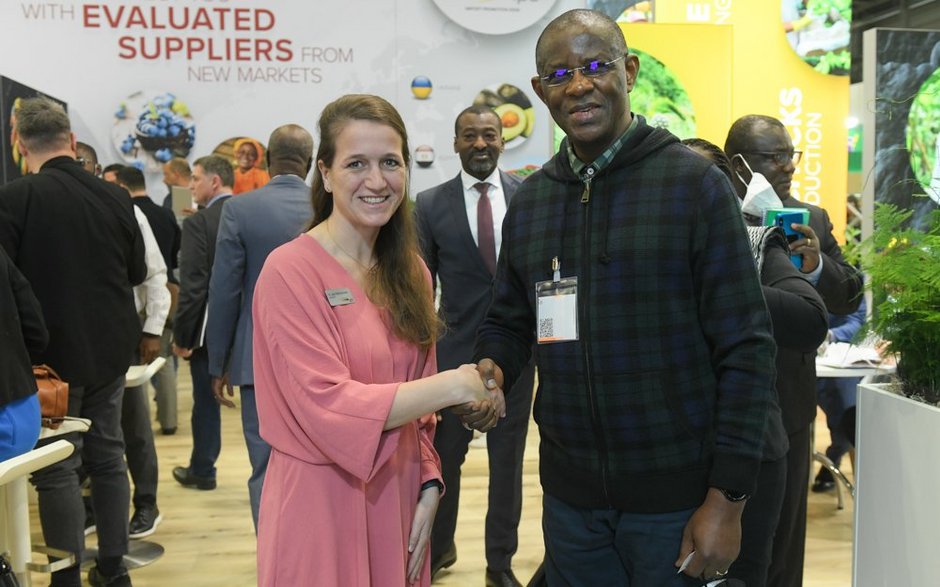
A good example of this is the cooperation between Worga Naturals from Sri Lanka and H+T Feinkost from Germany. IPD brought them together as trading partners.
Worga recognised the potential of jackfruit as a vegan meat alternative at an early stage. However, her product was initially unsuccessful on the EU market. Worga then found an ideal partner in H+T Feinkost. H+T Feinkost developed vegan patties from Worga Naturals' pulled jackfruit and a mixture of spices, which are now very successful in the food service market.
A classic win-win situation: H+T Feinkost has found a supplier of high-quality ingredients. Worga Naturals has conquered a new market in Europe. It has increased its number of employees, its turnover and its production.
A different sector, but with the same win-win effect: Mount Kenya Sprouts, a cut flower farm in Kenya, has put its sales strategy on a new footing with our support and is now relying on direct sales instead of flower auctions via the Netherlands.
The Kenyan grower works closely with the German company Blütenpracht Frischblumen. The two partners met on an IPD buying trip to Kenya. Since then, the cooperation has developed steadily.
Here too, both partners benefit: With Mount Kenya Sprouts, Blütenpracht Frischblumen has found a reliable supplier and quality-conscious expert for "summer flowers". Mount Kenya Sprouts, in turn, was able to increase its exports by 85 percent and more than double its workforce by switching to direct trade.
These examples show the benefits of economic cooperation with developing and emerging countries – for all partners.
Success Stories
Sri Lanka
Partnership on a level playing field
The perfect match paves the way for innovative products. It gets even better when high-quality raw materials are used.
Kenya
Benefits of direct trading
Diversity blooms at the foot of Mount Kenya: Mount Kenya Sprouts delights European buyers with a colourful selection of "summer flowers".


